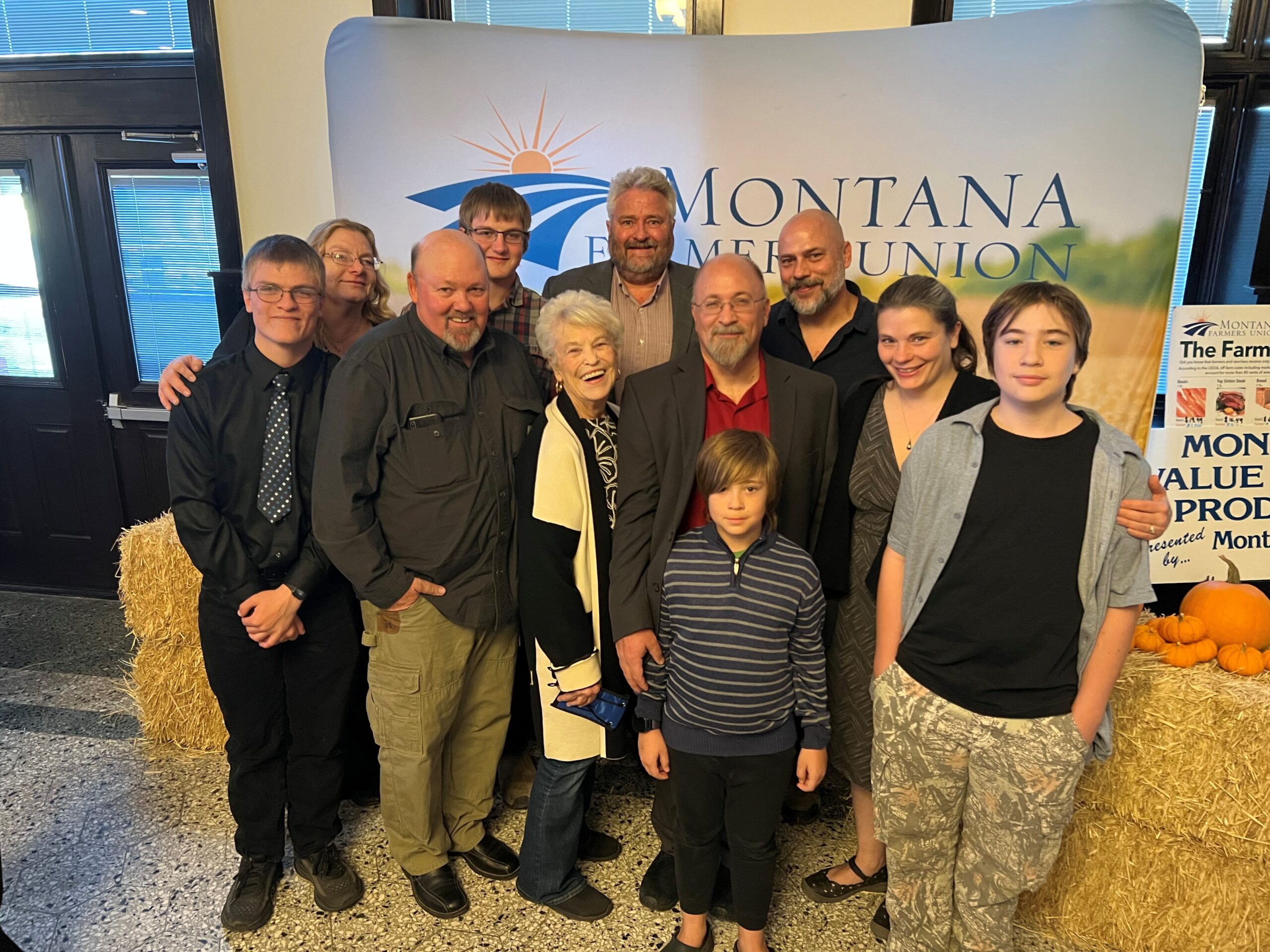
04 Nov Edwards Ranch honored as Centennial Ranch
It’s no accident Edwards Ranch has been in operation for more than 100 years. Hard work, ingenuity, and perseverance kept the ranch going through the decades, world wars, Great Depression, low prices, and severe weather.
In recognition of the achievement, Edwards Ranch was named a Centennial Ranch during Montana Farmers Union’s Annual State Convention held recently in Lewistown.
“Families who have been able to keep their farm and ranch operations in the family through good times as well as the bad times deserve recognition,” MFU President Walter Schweitzer said. “The Edwards family is a prime example of how that can be done and someday will be celebrating their bicentennial on the family ranch.”
“It means a great deal for the recognition of what our ancestors did. It’s a tribute to what my husband did because he was so proud of his heritage. And it’s a tribute to the difficulties that our ancestors went through,” said Diana Edwards, who dedicated the award to her late husband, Francis.
The Edwards family is credited with being one of the first families to bring sheep into what is now Powder River County. In 1880, John Edwards and his family travelled by covered wagon from Illinois to Washington before trailing 4,500 head of sheep from Walla Walla to Eastern Montana. Losses forced the family to move to Nebraska in 1887 before they returned to the Little Powder River area in the early 1900s.
John and one of his sons, Byrd, ranched together, while another son also ranched. Byrd’s descendants survived hard winters and droughts over the years by raising sheep and cattle, leasing land, and selling dairy and wood products. Over time, they purchased neighboring land.
Diana and Francis mark the fourth generation on the Edwards Ranch. Their three sons are the fifth and their sons the sixth on the ranch since 1881.
“You just have to take advantage of what comes available, whether it’s buying land or dealing with the weather and the amount of help you have on the ranch,” Edwards said.
The resilience of their forebearers means her family continues to operate the ranch today. Sometimes that resilience looked like having to sell part of the ranch, sometimes that looked like raising geese to sell down pillows and quilts, sometimes that looked like skinning beavers to sell the pelts to pay doctor bills, sometimes that looked like diversifying livestock. It always looked like trying again.
“Everybody went through the same thing, but they found some way to keep going. I think that’s the way it is now. It’s just instilled in our sons and our grandsons that you just keep going; you take care of things one day at a time,” Edwards said.
Just how hard homesteading was hit her when she watched the TV series 1883, Edwards said.
“I loved it. And then I realized Harriet Edwards came in 1881 and the things she went through – driving the wagon, raising two little boys, hauling water, tending to medical needs, shooting whatever they needed for meals. I can’t imagine how tough that lady was. And she was a lady; she wasn’t born and raised on a homestead.”
Despite all the travails her family has withstood, Edwards said ranching is a wonderful way of life that gives freedom and connection with neighbors. “We’ve toughened through all the storms, and we’re still here. It’s a beautiful place to raise your family.”



Sorry, the comment form is closed at this time.